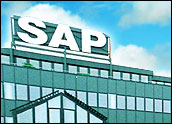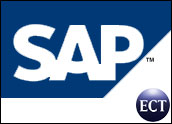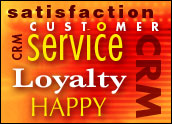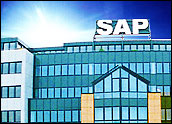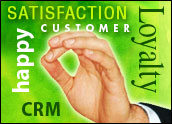
As businesses have focused more on efficiency and cost savings — and less onbig-budget purchases — as cornerstones of IT strategy, they have begun considering on-demand CRM services far more seriously than ever before. Hosted CRM, after all, usually costs far less than traditional on-premise software and is much easier to deploy.
Another reason why hosted CRM has taken off recently is that providers have moved closer to perfecting their offerings, hoping to extend CRM beyond the customer-service desk into new areas, such as the marketing department.
Amid this shift, another trend is surfacing. While many companies seem all too willing to share on-premise CRM and ERP horror stories, condemnations of hosted CRM are few and far between. Instead, success stories seem to be cropping up with increasing frequency. Could it be that this technology really works as advertised?
Common Problem
A few years ago, the direct consumer marketing efforts at Skechers underwent a change that left Geric Johnson, vice president of marketing, facing a difficult problem. Senior management decided to eliminate the company’s catalog — and a 40-person call center along with it.
Johnson told CRM Buyer that the move produced immediate cost savings — but with a robust Web presence that still brought plenty of customers to Skechers, doing online sales and support became extremely difficult.
“We were getting an enormous amount of e-mail from customers, and we didn’t have a tool to manage incoming e-mail in any effective way,” he said. “We ended up contracting with a telemarketing service just to handle the e-mail, but I knew it was a temporary solution.”
Beyond merely keeping customer service treading water, Johnson wanted a way to control the call-center environment and anticipate what customers would need. After reviewing numerous products, he decided on hosted CRM.
Logical Choice
Once Skechers implemented hosted CRM, the change was immediate. “We saw a reduction of incoming e-mail by more than 50 percent,” Johnson said.
The company had built a knowledge base that seemed to satisfy a large proportion of customers, and the resulting decline in e-mails meant the remaining staffers could breathe a bit easier. “We saw improved performance of customer-service staff, who could now handle two to three times what they did before,” Johnson added.
Skechers’ decision to use a hosted service rather than on-premise software was prompted by the flexibility and ease of implementation of hosted CRM, according to Johnson. He noted that hosted services have evolving features and require few in-house employees, leading to cost savings.
“I find it a better way for the organization to manage its environment,” he said. “You don’t need many support individuals, and the features are attractive.”
Size Doesn’t Matter
Hosted CRM may also be compelling for smaller companies, given the low number of staffers needed. Crestron Electronics, a designer and manufacturer of advanced control systems for boardrooms, decided on hosted CRM because the company was growing, and its customer service needed to grow as well.
Richard Sasson, Crestron director of technical services, told CRM Buyer that his company decided to utilize on-demand CRM because dealers needed accurate, up-to-date information, and the company’s size proved a hindrance.
“In smaller companies like ours,” he said, “business suffers when you take your core people offline to dedicate [them] to an in-house application.”
Sasson especially appreciates the way a hosted customer-service system can expand as a business grows, and the way it provides security that the company might not have had otherwise. Overall, no matter how large Crestron becomes, Sasson does not anticipate bringing CRM back inside the company walls.
“Our e-mail traffic is up, and yet our phone traffic has not been affected,” he said. “The delivery model has helped to eliminate the costs and management burdens associated with an in-house project.”
New Functionality
In a June 2003 Aberdeen Group survey, 85 percent of respondents said they would consider using on-demand CRM services. The underlying catalyst for such enthusiasm may be not just cost and flexibility gains, but also how hosted solutions are anticipating change.
“Historically, contact centers have been reactive, but there’s been a transition over the last three years,” said Jason Mittelstaedt, product manager of RightNow Technologies, the hosted CRM company utilized by both Skechers and Crestron.
Mittelstaedt told CRM Buyer that in the past, customer-service departments would focus on digging out of an e-mail avalanche every day. Now, however, hosted CRM has allowed them to think in a different way.
“They actually see blue sky now,” he said. “They’re able to sit back and think about how they can improve customer service.”
Proactive Service
One way to serve customers better, Mittelstaedt noted, is by linking the customer-service department with other business initiatives, especially marketing. “There’s so much information that customer service has, and they know when the spikes are, so there’s an opportunity to contact your customers before they contact you,” he said.
In fact, RightNow has added marketing functionality to the newest version of its software. Mittelstaedt hopes the move will help companies become more focused in their customer-service efforts.
“Commonly, companies are completely in the dark when it comes to cross-departmental activities,” he noted. “It can be a huge frustration point.”





